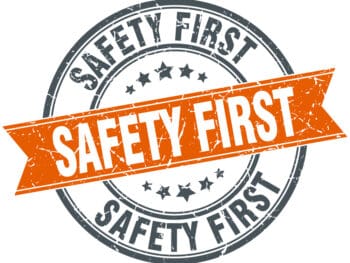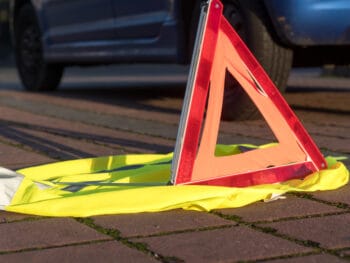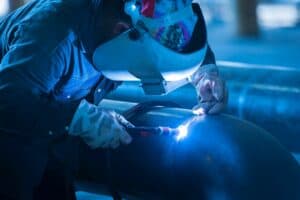It’s no secret; work zones can be a dangerous place both for employees and for passers-by. Due to the materials, heavy equipment, and the busy activities at industrial zones, they can be a risky place making safety an important concern. Keeping everyone safe on site should be top priority to all supervisors, workers, and those nearby. A focus on safe zones and safe work means construction can proceed effectively, on schedule, with good quality, and with everyone being safe. Luckily, there are good tips to help those who work in and manage industrial zones to keep them safe.
Click Link to Access Free PDF Download
“4-Step Sequence For Effective Employee Screening, Hiring, & Placement”
Protective Gear is a Must
Everyone entering a work zone should be wearing protective gear. Whether the person is simply looking around, delivering supplies, or talking with someone on the crew, protective gear is still important. Even one unprotected person is at risk in industrial zones. Likewise, everyone needs to be wearing the correct gear. Leaving off a safety hat or vest because of hot weather, for instance, is an unwise risk because a break without proper safety equipment leaves one exposed. Also, it is important to make sure each person has the proper equipment for the specific job available to them and that it is in good condition.
Clear Directions and Communication
Industrial zones can be chaotic, loud, and confusing. Due to the number of people and the equipment being used, communicating clearly is very important. Posting clear signs with words or obvious imagery to remind everyone on site of important rules or reminders is a great idea. Bright colored signs with clear images or large, simple wording will be certain everyone remembers the proper precautions. Likewise, it can draw attention to remind passers-by to be careful in heavily populated places.
Choose the Right Times
Choosing the right times to perform construction work is important, especially for jobs on busy streets or in populous areas. Avoiding night time work is advisable. Even with reflective clothing, night work can be a hazard both to people nearby and to workers. Likewise, workers are more likely to be tired and less focused from long hours continuing into the evening. Therefore, working during daylight hours only is one of the safest ways to handle a construction zone.
Keep an Eye Out
In addition to proper positioning and clothing that is meant to make others nearby aware of the workers, be sure to have a safety supervisor on each project. Having a specific person appointed to looking out for general safety concerns as well as all workers as his or her primary task means safety concerns that might not be seen otherwise are more likely to be noticed and addressed. The manager should have a good amount of experience in construction and be familiar with safety codes, company procedures, and what sorts of things to look out for that may be a danger.
Reroute
If at all possible, detour as much traffic as possible – both human and automobile – to keep people from getting unnecessarily close to the zone. If a detour isn’t possible, be sure to set up clear ropes and barricades to mark where people should not go past and put someone in charge of looking out for people not paying attention during busy times. Barricades and proper signage and someone flagging or watching traffic can greatly reduce accidents from those passing by who aren’t paying attention.
Proper Insurance
Perhaps it’s stating the obvious, but insuring both workers and the work zone is an extremely important part of industrial work zone safety. Insurance policies keep workers protected in case of injury and supervisors and owners safe in case of any accident or problem. Looking into a good coverage policy or set of policies is one of the first things that should be undertaken before opening a new construction zone. Likewise, policies should be inspected regularly to make sure they still meet the needs of the zone and that they don’t need an update or renewal.
By following these and other common sense safety tips, industrial construction zones can be a much safer place for everyone. Likewise, following safety tips will ensure work proceeds the way it should and is a success for everyone.
Kenneth Overton is a risk management consultant and a former construction supervisor with over 10 years of experience in the industry. He specializes in risk analysis and disaster management. Contact: kenneth.p.overton@gmail.com.



















